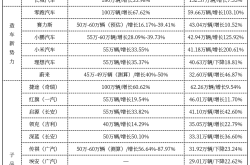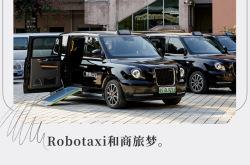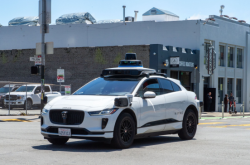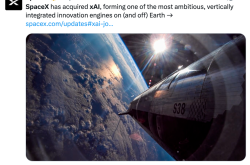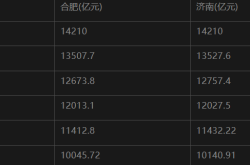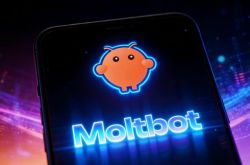Exploiting OpenAI for Personal Gain, What Game is Altman Really Playing?
![]() 06/07 2024
06/07 2024
![]() 670
670
Introduction
Do you believe in the light?
As the founder of OpenAI, Sam Altman has been crowned the "new king of Silicon Valley." While Elon Musk and Huang Renxun remain formidable, the imagination space created by AGI has entrusted Altman and his OpenAI with the world's belief in "the light."
The responsibilities of a "king" go beyond managing a company, extending to fulfilling a vision that benefits humanity. If Musk's vision is to make humans citizens of Mars, Altman's vision should be to realize AGI with all his might.
But what if there's a crack in this vision?
Recently, the Wall Street Journal pointed out in a long article that Altman has invested in over 400 companies, with a stake worth at least $2.8 billion. This secretive and vast investment empire has directly benefited from the success of OpenAI.
01? Altman's Investment Portfolio
On the surface, Altman, as the CEO of OpenAI, only receives an annual salary of $65,000 and does not hold any shares, citing the reason that he doesn't want wealth to corrupt the safe development of AI.
In reality, Altman indulges in "walking on two boats." In his investment empire, more and more companies are directly doing business with OpenAI, either as OpenAI's customers or major business partners.
For example, OpenAI is entering into an agreement with Helion, a nuclear energy startup, hoping to purchase a significant amount of power from them to power its data centers.
Bingo! Helion's chairman is none other than Altman.
Helion, which has been established for 11 years, is planning to build a nuclear fusion power plant, a technology that is not yet available in any usable form. In 2021, Altman invested $375 million in Helion, his largest investment check to a startup. In 2023, Helion signed a contract with its first customer, Microsoft, which is also OpenAI's largest investor.
Another example is OpenAI announcing a partnership with Reddit, paying to use content from Reddit to train ChatGPT and other AI products. Altman and entities he controls hold 7.6% of Reddit's shares. Altman even briefly served as Reddit's CEO in 2014.
After the news of the partnership broke, Reddit's share price, which had previously plummeted, surged by 10%, resulting in a $69 million increase in Altman's stake, bringing it to $754 million.
Another instance is Ai Pin, which had aspirations of surpassing Apple but ultimately failed. The founder of its company, Humane, publicly thanked not only OpenAI but also Altman. No wonder, as Ai Pin is essentially a hardware version of ChatGPT. Altman himself participated in three rounds of funding for Humane and is the largest investor behind Ai Pin.
Yet another example is that OpenAI signed a letter of intent in 2019 to purchase $51 million worth of AI chips from Rain AI, a company Altman invested in early on.
Rain AI is an AI chip startup aimed at providing "low-cost, high-efficiency" hardware to developers like OpenAI through the development of "brain-like" AI chips, NPU. Its founder claims that the NPU will be 100 times more powerful than a GPU, with 10,000 times less energy consumption, capable of both training AI models and running large models. However, the NPU's design is based on the RISC-V open-source architecture, and the product has yet to be released to date. Will it eventually rival Huang Renxun and NVIDIA? We'll have to wait and see.
The examples listed above are just direct relationships, and some "subtle" beneficial partnerships are also emerging.
Last summer, Altman invested an undisclosed amount in Apex Security, an Israeli cybersecurity startup whose goal is to sell cybersecurity software to companies using AI products like ChatGPT.
In April this year, Altman, along with a16z and Atomic, provided up to $20 million in seed funding to Exowatt, a company dedicated to addressing the clean energy needs of large data centers used by AI companies.
So, how do Altman's colleagues explain this?
Remember, always maintain loyalty to the "king."
On the one hand, OpenAI's public statements indicate that Altman avoided any appearance of impropriety in negotiations with Humane and Reddit.
On the other hand, Bret Taylor, OpenAI's chairman, firmly stands by Altman: "Sam has always adhered to company policies and remained transparent about his investments." "Sam is fully committed to his CEO duties. We will carefully manage any potential conflicts and always put OpenAI and our mission first."
But does this really make sense?
As the old campus legend goes: "The school supermarket is run by the principal's relatives."
Generally speaking, the boards of listed companies prohibit executives from holding significant stakes in external enterprises, primarily due to concerns about executives "favoring friends or relatives" or directly making deals for their own benefit. Even if the CEO actively avoids conflicts, employees below them may still face dilemmas and embarrassment.
Although OpenAI is not yet listed, it is poised to become a trillion-dollar unicorn. Altman's behavior is a bit too informal.
It's worth mentioning the "palace intrigue" at OpenAI last November, when Altman was ousted due to a lack of candor in his communication. According to informed sources, some directors who voted to oust Altman believed that Altman did not provide sufficient information about the size and scope of his holdings in startup companies, making it difficult for directors to understand how he personally benefited from transactions sought by the company.
Interestingly, when Altman returned, three of the four directors who voted to oust him resigned. And Bret Taylor, the current chairman and Altman's staunch ally, joined the board at that time.
Even more interestingly, in April last year, Altman recommended to the OpenAI board that Quora's CEO Adam D'angelo be removed from the board due to Quora's development of Poe, which is a customer of OpenAI. However, the board deemed this unnecessary and did not approve it. Among the directors who voted to oust Altman in November last year, D'angelo was the only one who voted in favor and is still a member of the board.
In summary, whether you believe it or not, there is indeed an intricate interest relationship between Sam Altman's personal investments and OpenAI's business, and some of these transactions have indeed earned him real money.
02? Altman's Investment Bible
For those of us who admire the big shots, the key is to learn from Altman's investment bible.
In 2017, on an ordinary summer day, Superhuman CEO Rahul Vohra suddenly frantically messaged investors, as the company had just tested a new version of Chrome that was about to be released.
As a result, due to a minor code change, Superhuman's intelligent email service crashed overnight!
Vohra searched far and wide for contacts, but none of them could directly contact Google headquarters. It wasn't until Friday evening that Vohra started messaging his angel investors, including Sam Altman.
Within a few minutes, Altman replied: "I'm at a party, and Sundar is right next to me. Wait for my message." Sundar mentioned by Altman is none other than Google CEO Sundar Pichai.
The next morning, a Google vice president apologized to Vohra and invited him to Google's San Francisco office for a face-to-face meeting.
In the years that followed, Superhuman maintained a close partnership with Google, including testing the latest changes in Chrome.
Vohra attributes all of this to Altman.
In 2023, after a 30-minute meeting, Altman decided to invest in Superhuman through his personal fund.
Vohra said: "Sam reached out to help the founder of a startup, even though it was just a small investment for him, it was a crucial moment in our growth trajectory."
This story reminds one of Altman's words in "How To Be Successful": "Make friends with good people and help them as much as possible. Three of my four most successful investments were founders whom I had sincerely helped. Although it was a decade ago, I was lucky enough to have later investments with ultra-high returns."
The story also reflects Altman's investment style - investing in people, being bold, and investing heavily.
Altman has attributed his success in investing to his ability to identify talent: "Throughout my career, I believe that one of the most successful investment methods is to find very outstanding but undiscovered talents."
He himself is a firm believer in the "power law" theory. After selling Loopt, which he founded while still a student, Altman wrote in a blog post: "It's normal to earn more money from your best angel investment than from all your other investments combined."
Therefore, Altman's investment portfolio is modeled after the "power law": it includes some smaller, speculative bets and several highly concentrated, larger bets, but one of them may transform into another, like Reddit.
Another significant investment of Altman's is in Stripe, the "king of SME payments." Altman served as a scout for Sequoia Capital and helped Sequoia complete Stripe's initial investment. In 2021, Stripe reached a valuation of $95 billion and offered a share buyback offer to employees at a valuation of $65 billion in February this year.
And in 2020 and 2021, as Stripe's valuation soared, Altman made a fortune. Some joked that the 950-acre ranch Altman purchased in Napa Valley in 2020 was called "Stripe's house" by guests.
Since the end of 2022, with the explosion of ChatGPT, Altman says he rarely has time to focus on startups, but due to his popularity and "fire brigade" abilities, he remains at the top of the wish list for equity structures in startups.
Reid Hoffman, co-founder of LinkedIn and a long-time director of OpenAI, commented: Many investors fear failure and only invest in companies that can make money without much risk, but Sam is willing to take risky bets.
Conclusion
Is it possible that being the CEO of OpenAI is Altman's "side job," while investing is his main job?
From this perspective, Sam Altman is using his investments to build a future AI empire.
In terms of energy, AGI will consume as much electricity as a large city. Altman has invested in nuclear fusion startup Helion, new modular energy company Exowatt, scalable fission reactor startup Oklo, and more.
In terms of computing power, to make chips as accessible as air and water, Altman has not only invested in Rain AI but is also planning his own $7 trillion chip project.
In terms of immortality, Altman not only practices 15-hour intermittent fasting and is a committed vegetarian but has also invested in Retro Biosciences, a company dedicated to researching "cellular reprogramming" technology to delay death. This sounds much more reliable than "blood transfusions."
Perhaps the truth is what Altman joked about four years ago: "I spend 99% of my time on OpenAI, so it's a waste."

